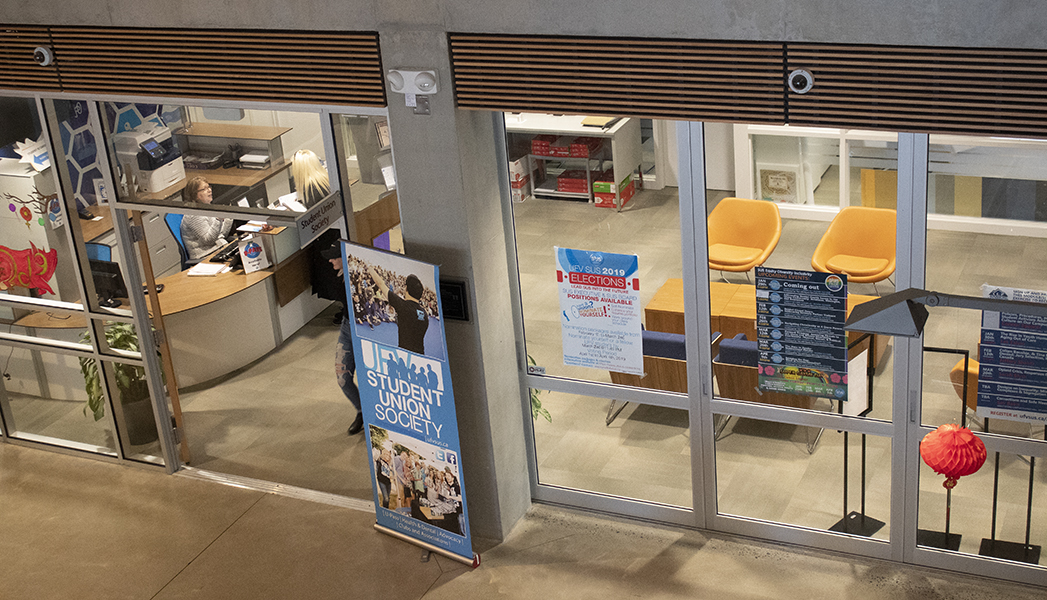By: Jessica Barclay and Mikaela Collins
Over the past two years, the state of SUS’ leadership has sometimes seemed confused, disorganized, and ineffectual. At the Annual General Meeting (AGM) in May 2019, students demanded a full audit of the last five years of financials and claims were made that an unnamed manager threatened legal action if employees came forward with workplace grievances. Although funding was eventually freed up for Clubs and Associations (C&A) after a fee change referendum was passed, the initial budget presented at the meetings was for $0. Two executive directors have left within the last year.
A number of positions will be open, including all of the board representative positions, which are low commitment but with no pay, and the four executive positions, which are higher commitment but definitely paid. With elections just around the corner (students can send in their nomination forms starting Feb. 17), it’s time for us to think about what qualities the next executive team should have.
Executives within the organization can make a certain degree of realistic changes, but must work within the confines of the previously determined financial budget. They also need to work in line with the needs and explicit desires of the students.
Understanding the responsibilities and powers of a given position is a plus. One may consider this a given, but based on the candidate Q&A periods held for recent elections, it is clearly not. One cannot claim this is the fault of the candidates as the documents presented to new candidates regarding the positions are vague and often read more like promotional material than job descriptions. However, candidates should familiarize themselves with what is possible and what is expected of specific positions before making campaign promises.
SUS has had historically poor relationships with the university and other organizations on campus. This has been improving over the last year, but would be helped by executives looking to continue the trend of positive collaborations.
SUS is our student union. Just like how a labour union is supposed to act in the interests of employees with an employer, the Student Union Society is supposed to represent students’ interests in dealings with the university and the community at large – dealings that it should be proactively seeking out. This means the SUS president should not only be committed to building a working relationship with the university administration, but should also have the courage to stand up to it and advocate for students.
SUS is presently engaged in several avenues of external advocacy. The current vice president external sits on the board of both the Alliance of B.C. Students and the Canadian Alliance of Student Associations, which SUS pays membership to. While it is the responsibility of student unions to engage in advocacy campaigns, it needs to be in consultation and in line with the needs of the university’s students.
SUS has also been reaching out to students more in the past few months, with multiple executives reporting at the January board meeting that they’ve been prioritizing meeting with students. The current vice president internal ran one focus group last year where students were invited to discuss SUS’ election policies, and is planning more that will deal with other SUS policies and programming.
SUS should be a conduit for the voices of students on campus but it will only be that if students take an interest in how the organization is run. Vote accordingly, and consider running.
Image: The Cascade


